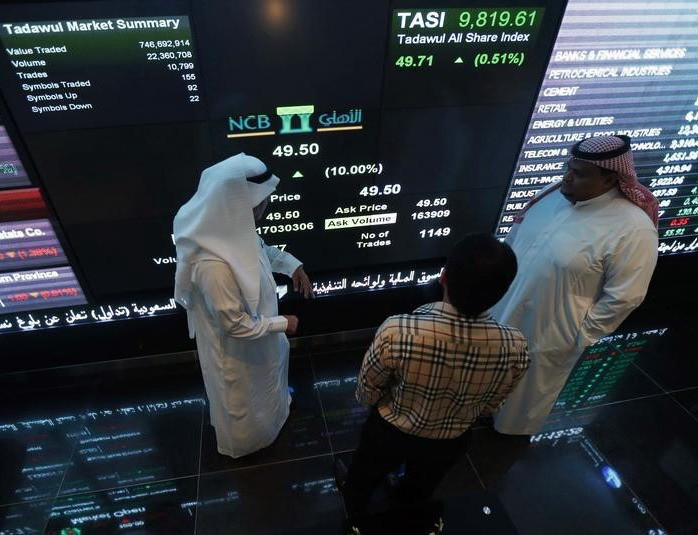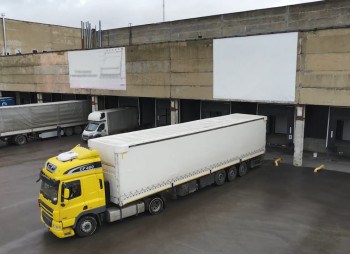Saudi Arabia’s $590 billion stock market opens to foreigners on Monday, nearly a year after the kingdom unveiled plans to give international investors direct access to the Middle East’s biggest economy.
The kingdom posted solid economic growth in the past decade funded mostly by hundreds of billions of dollars in oil-sales income. But a sharp drop in crude prices since mid-2014 has crimped its ability to maintain a massive local spending plan, forcing it to burn billions in foreign reserves this year.
One of the world’s last major markets to restrict foreign access, its opening will allow Saudi Arabia potentially to attract tens of billions of dollars in fresh investment, helping to ease the pressure on the government to support the private sector amid a weak outlook for oil prices.
Riyadh-based Alistithmar Capital described the opening of the market, which is dominated by local players, as the beginning of a “historic transition period,” as listed companies will now have access to international expertise and a more diversified and stable source of capital.
Foreign investors, meanwhile, can invest in some of the region’s fastest-growing companies in sectors including financials, industrials, telecommunications, food and retail, gaining exposure to the Arab Gulf region’s most populous nation.
“As the largest and most liquid market in Middle East and North Africa, there is understandably significant interest in and excitement about this event,” said Khatija Haque, the head of MENA research at Emirates NBD. “From an economic perspective, the move is timely, as foreign portfolio inflows would help to offset an expected deterioration in the current account surplus this year,” she added.
Saudi stocks are already reflecting this enthusiasm for the market’s opening. Valuations are at near five-year highs as the benchmark index has rallied about 16% in the year to date, making the market the Gulf region’s top performer.
The Tadawul, as the local market is known, is trading at a 12-month multiple of 16.5x forecast earnings, a 30% premium to the MSCI emerging markets index, according to Emirates NBD.
In the longer run, some analysts expect the market to attract $40 billion in foreign investment, especially after it is classified as an emerging market by index compilers such as MSCI Inc.
MSCI said last week it would assess the market’s accessibility to foreigners before considering adding it to its emerging basket, a process that could take about two years.
“The [market opening] process itself will take time to implement and we most likely will not see a mad rush in by Western accounts; it will be a gradual process determined by the speed of the implementation,” Al Masah Capital said.








